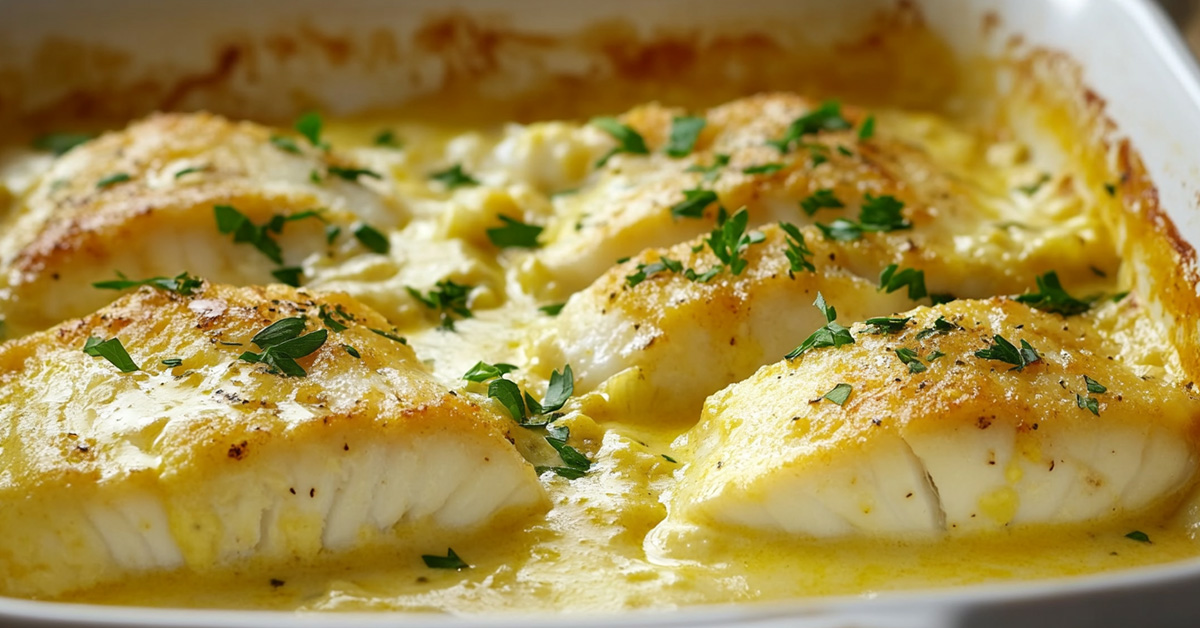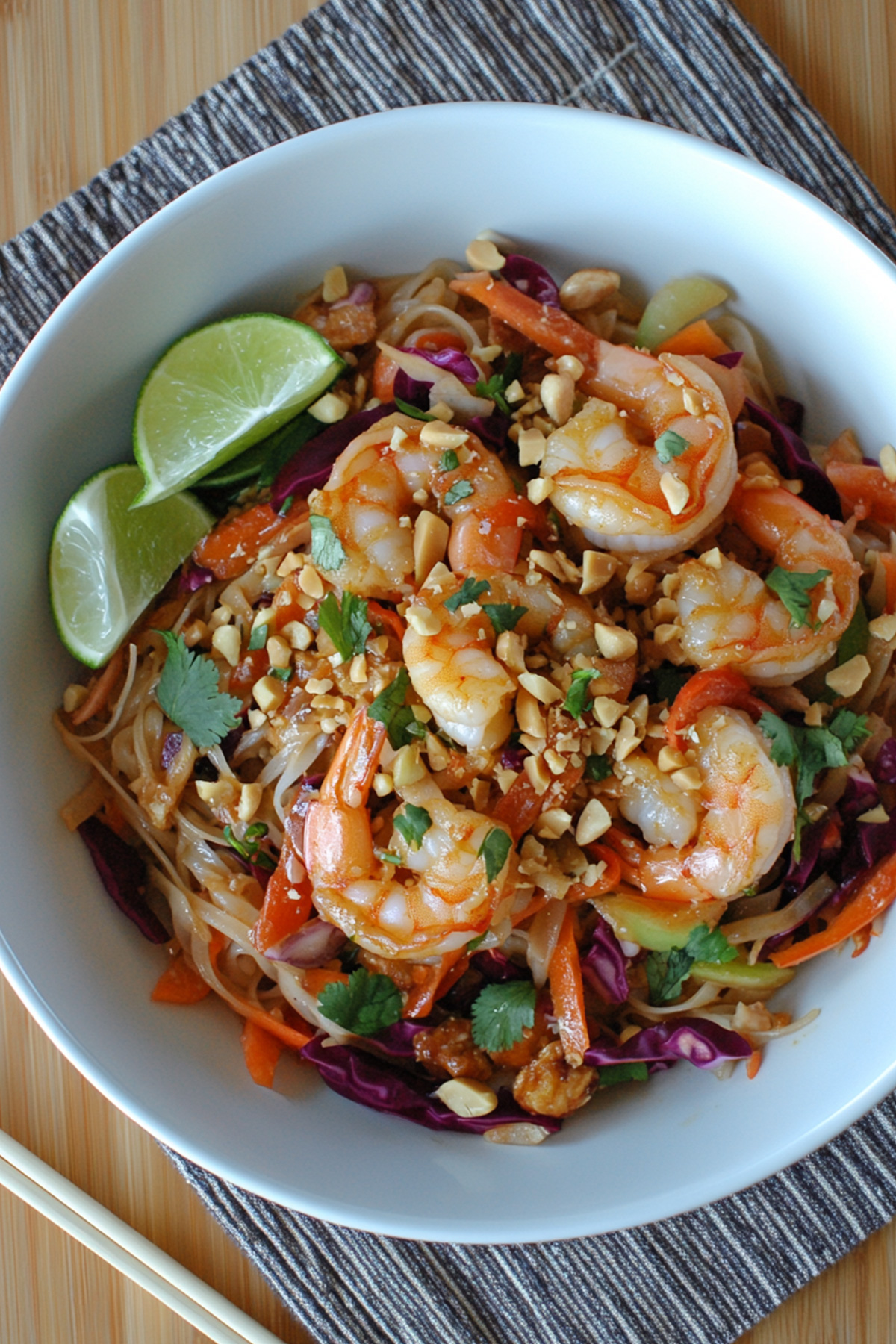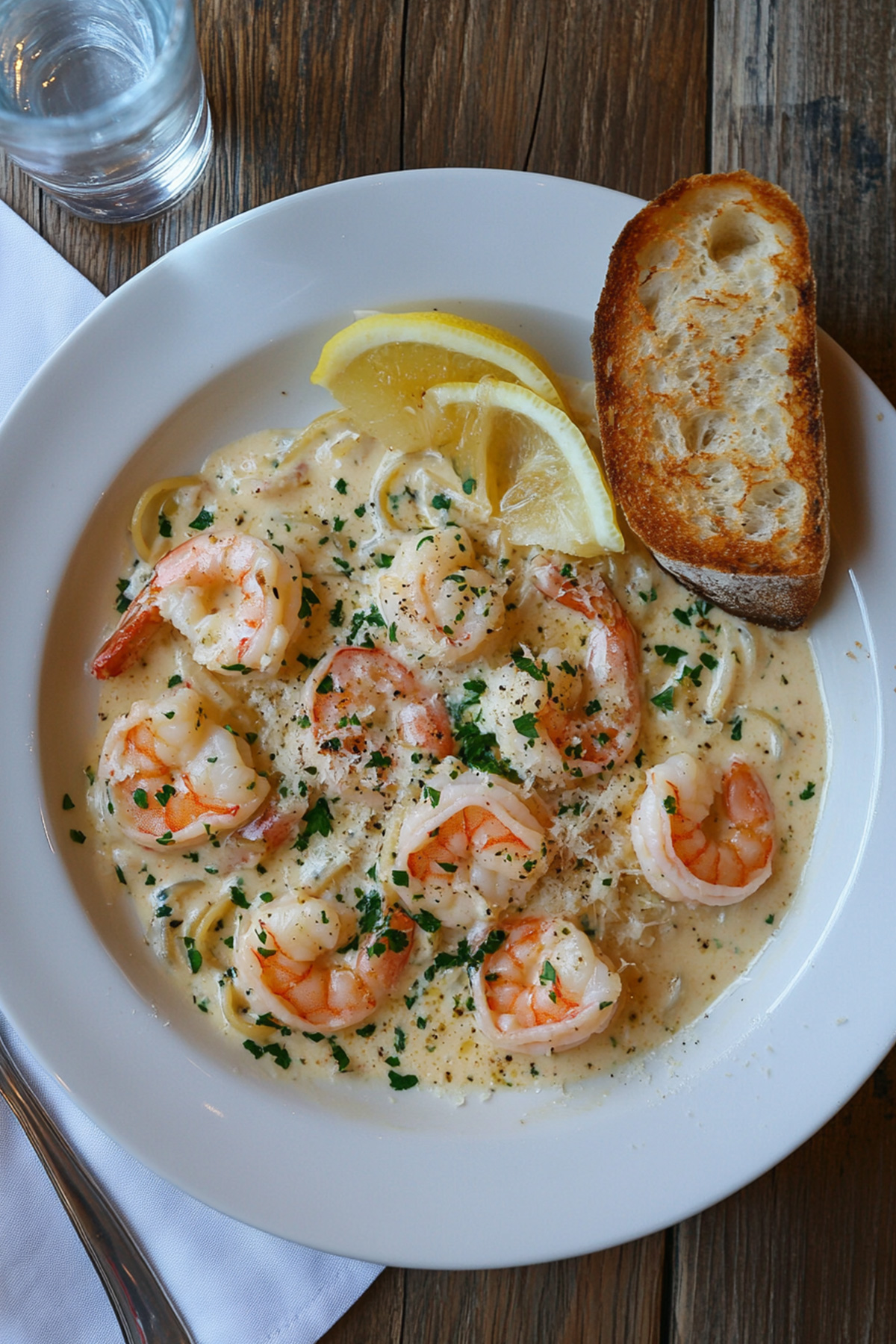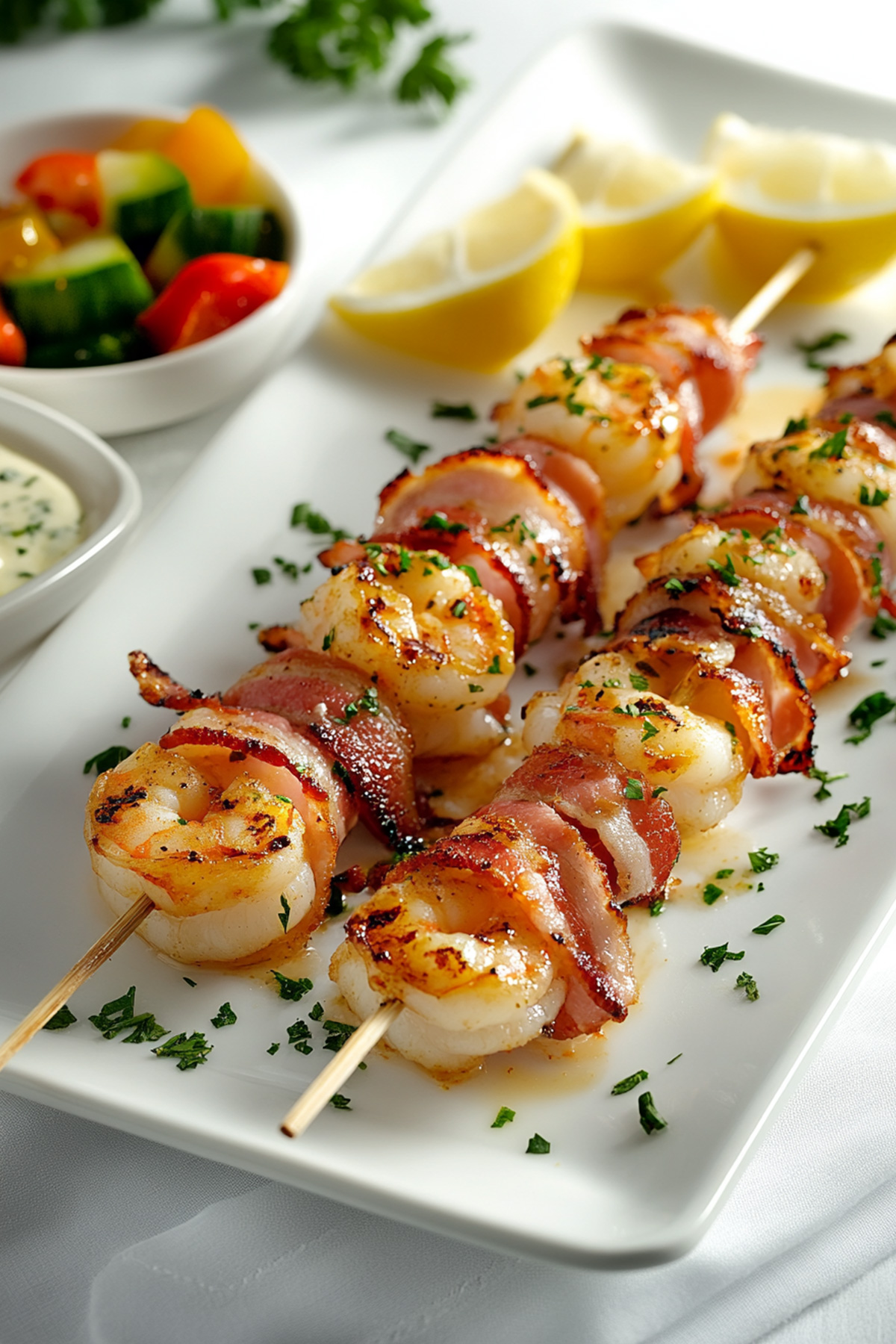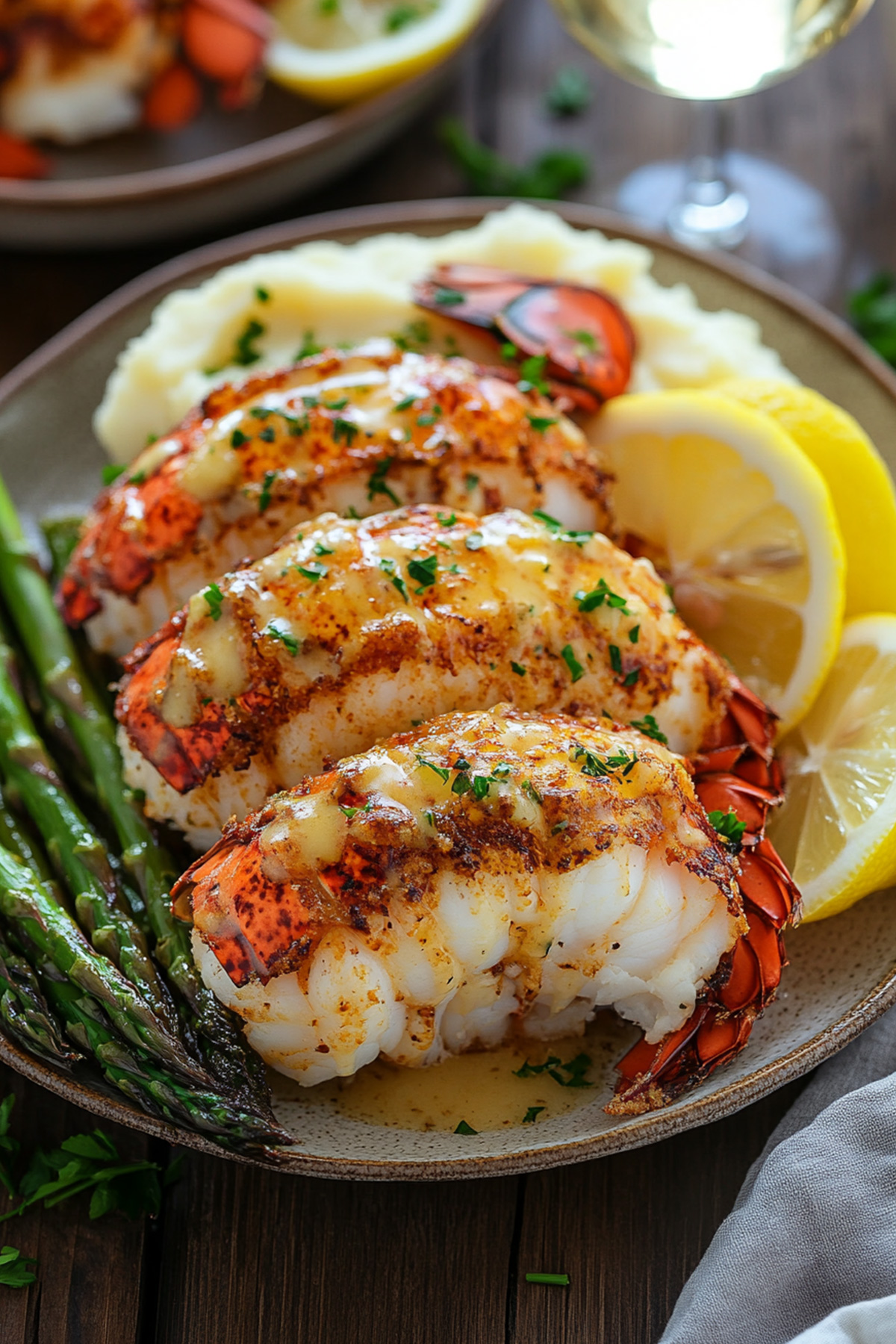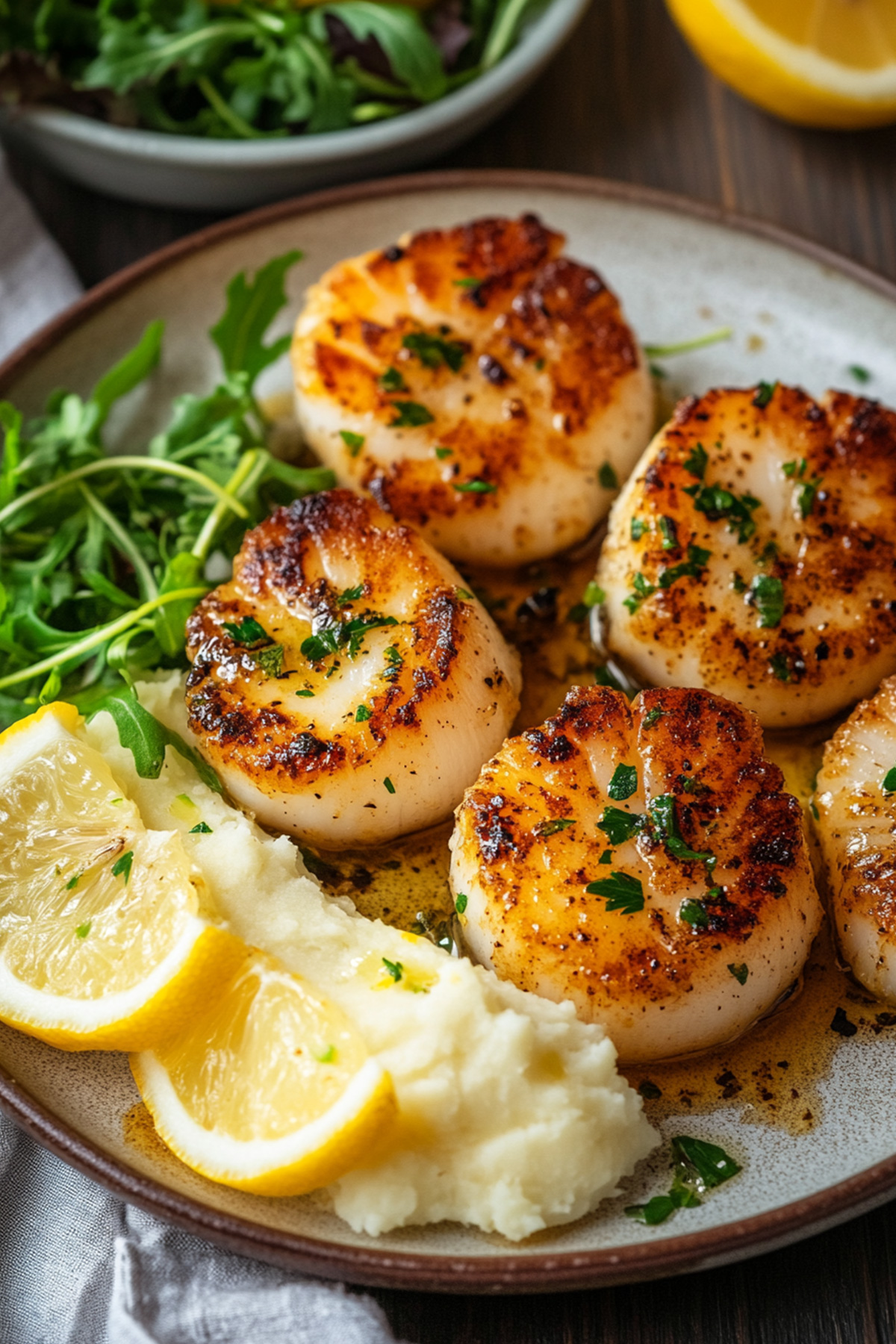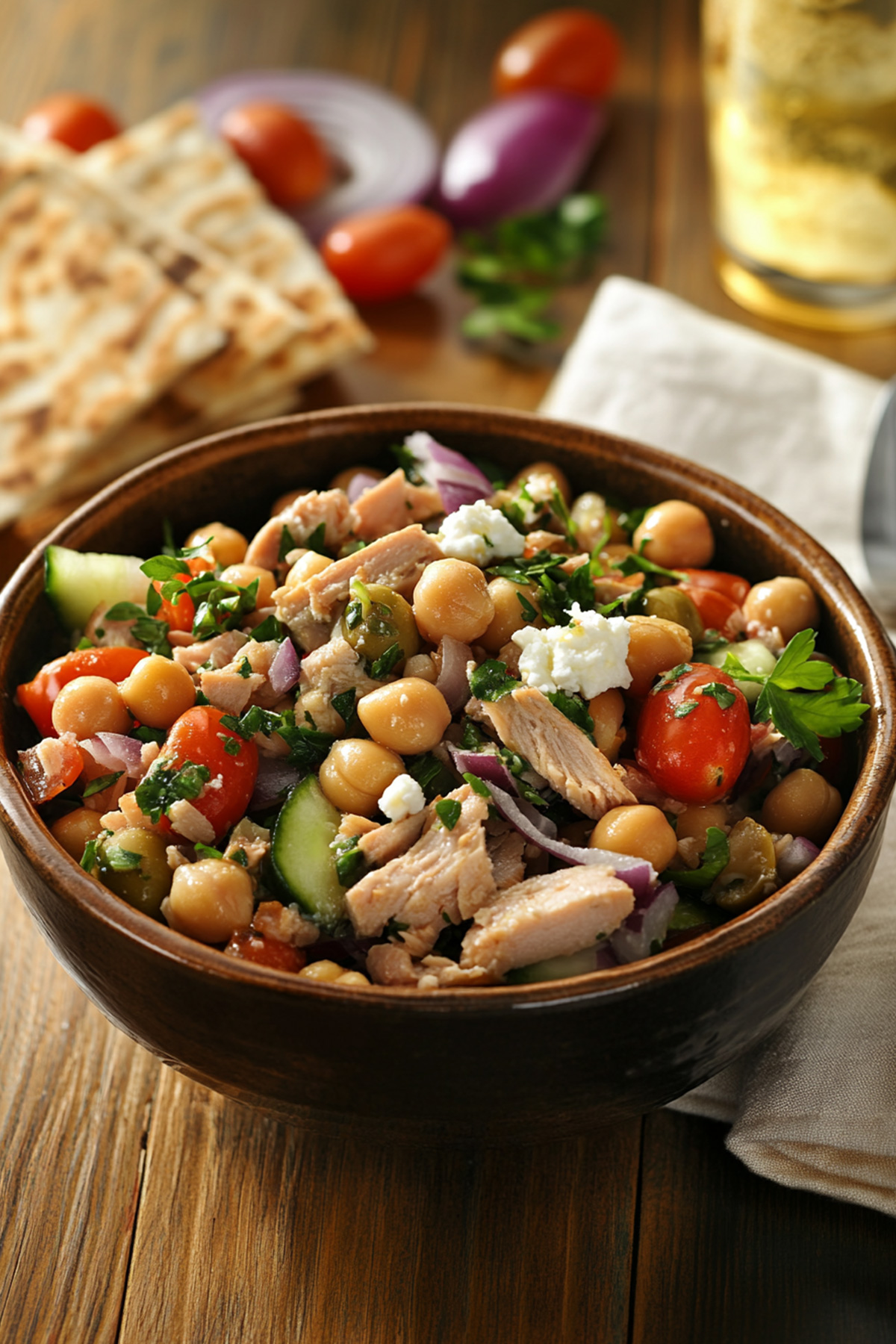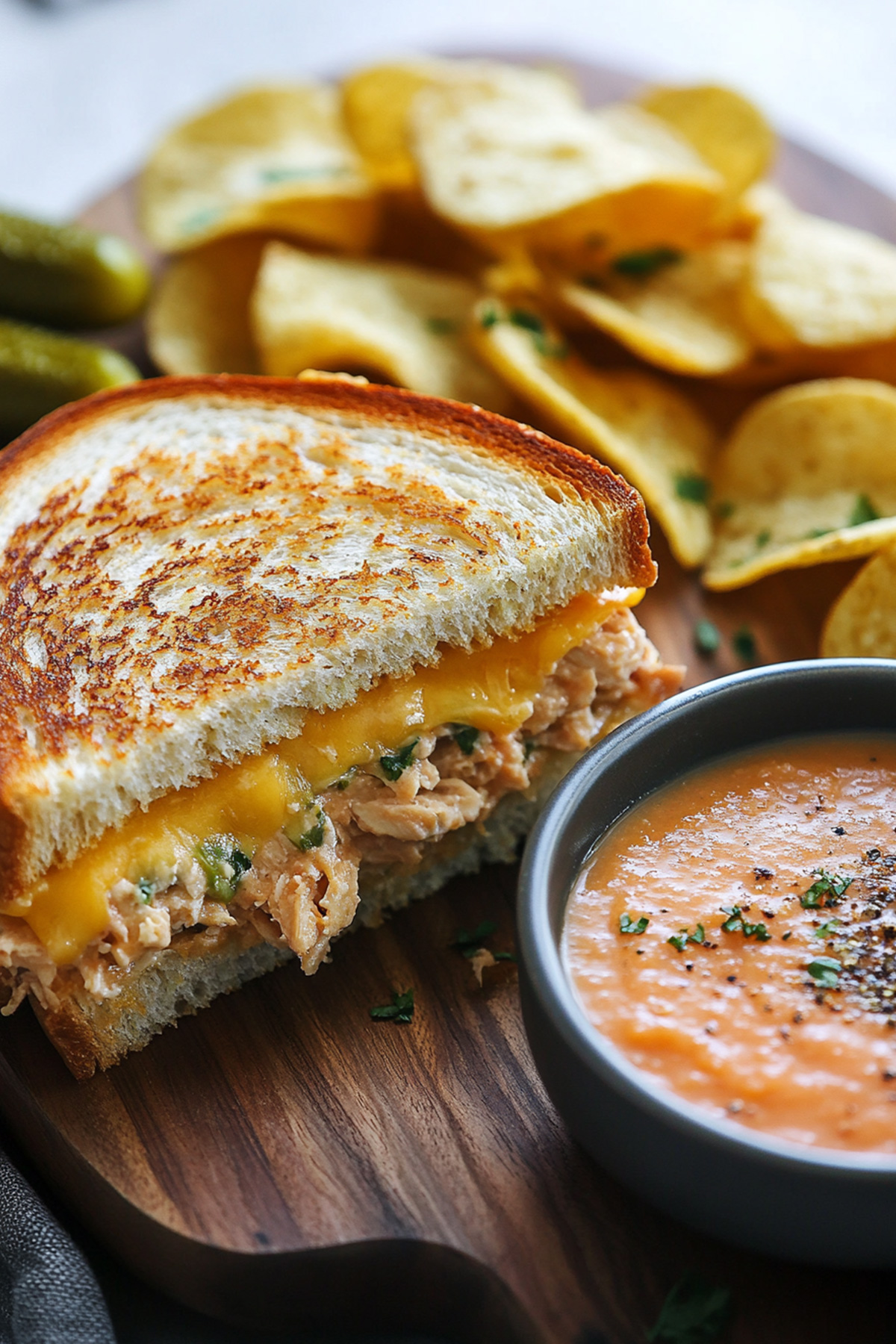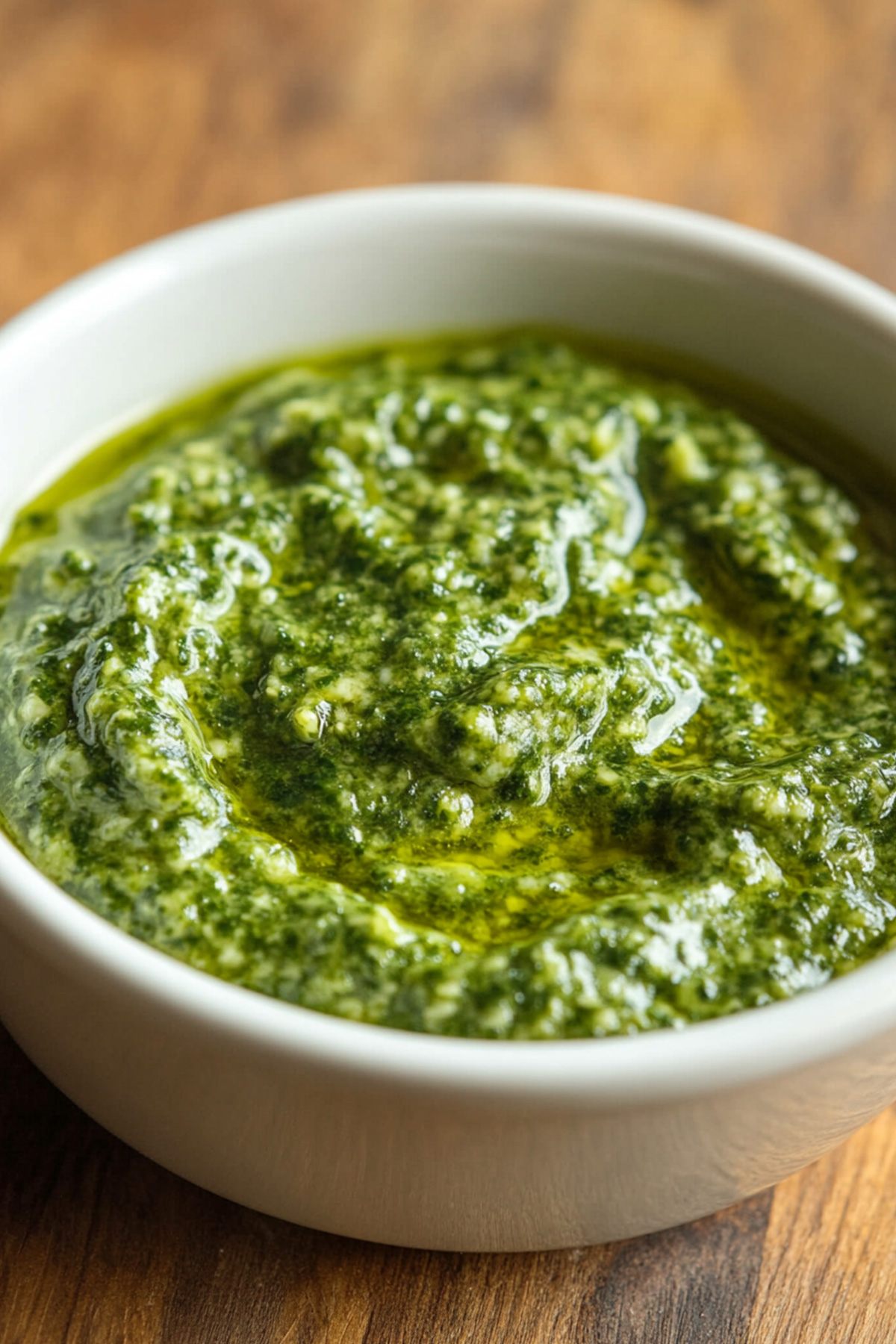Disclosure: As an Amazon Associate and participant in other affiliate programs, we earn from qualifying purchases. We only recommend products we believe will provide value to our readers.
Smoked haddock adds a unique taste that makes ordinary fish dishes special and memorable. You might already know this versatile seafood, or you might be trying it for the first time. The recipes range from comfort food classics to modern innovative dishes.
You can start with basic preparations of smoked haddock filets and move on to more creative methods. This flavorful fish works well in traditional British fish pies and fits perfectly into fusion dishes. It adapts easily to different cooking styles and cuisines from around the world.
This piece covers everything you need to know about cooking with smoked haddock. You’ll find classic recipes and creative serving ideas. The guide also includes health benefits and expert tips to help you make the most of this delicious seafood ingredient.
Table of Contents
What is Smoked Haddock?
The world of smoked haddock reveals more than just a simple fish preparation. This traditional delicacy comes in several distinct varieties, each with its own unique characteristics and preparation methods.
The most prominent varieties of smoked haddock include:
- Finnan Haddock (Finnan haddie): A traditional on-the-bone preparation, salted and cold-smoked over peat and green wood
- Arbroath Smokies: A world-class specialty with Protected Geographical Indication status, prepared through hot smoking. [Reference]
- Traditional Grimsby Smoked: A refined smoking process developed by family-run businesses over generations
You’ll notice smoked haddock’s bright yellow color. This distinctive hue comes from a dye that compensated for reduced smoking times historically. Many people now prefer natural smoked haddock, which shows a subtle, beige coloration that seems more authentic.
The smoking process substantially improves the fish’s natural characteristics. Haddock isn’t naturally oil-rich, but it takes exceptionally well to smoking and makes perfect classic dishes like kedgeree and fish pies. The process creates a deep, earthy flavor profile that stands out in Finnan haddock, while Arbroath smokies develop a creamy flesh with a luscious savory taste.
Keep in mind that smoked haddock still requires cooking before consumption. Arbroath smokies are the exception since they’re hot-smoked and ready to eat. These special smokies come from within a 5-mile radius of Arbroath, Scotland. Local producers use traditional methods that involve hardwood smoking in specially prepared pits.
The traditional smoking process demands careful preparation and attention to detail. Arbroath smokies’ preparation involves tying two salt-dried haddock together. Producers smoke them over a hardwood fire of beech and oak until they achieve their characteristic golden-copper tones. This meticulous process creates the fish’s distinctive flavor and texture that modern shortcuts simply cannot match.
Read also: Smoked Mackerel Recipe
Creative Ways to Use Smoked Haddock Filets
Let’s revolutionize your cooking with new ways to prepare smoked haddock filets. This versatile fish offers more possibilities than just the traditional poaching method.
Start by learning the basic cooking techniques. Traditional recipes might suggest poaching, but you can try:
- Pan-searing for a crispy exterior.
- Grilling to boost the smoky flavor.
- Baking in parchment paper for moisture retention.
- Steaming for a delicate texture.
- Broiling for a golden finish.
Your creativity can shine in fusion dishes that mix different culinary traditions. Smoked haddock works great in Asian-inspired rice bowls or Mediterranean pasta dishes. The fish’s strong flavor pairs well with saffron, curry spices, or fresh herbs.
Breakfast becomes special when you crumble smoked haddock into scrambled eggs or create your own eggs Benedict variation. Lunch gets interesting with flaked smoked haddock in fresh salads or wrapped in tortillas with avocado and lime for tasty fish tacos.
Modern interpretations can breathe new life into your smoked haddock dishes. Turn traditional fish cakes into elegant croquettes with fresh herbs and zesty citrus notes. A contemporary twist on classic chowder comes alive with Asian-inspired ingredients like lemongrass and coconut milk.
Party appetizers showcase smoked haddock’s versatility. Small portions combined with cream cheese and dill on cucumber rounds make elegant canapés. Sophisticated fish mousses spread on crusty bread impress guests easily.
Quick weeknight dinners benefit from flash-cooking techniques that keep the fish’s delicate texture while adding flavor. A quick pan-sear with butter and fresh herbs creates an elegant meal in minutes. The fish flaked into a light cream sauce with peas and parmesan makes a simple yet impressive pasta dish.
Warm grain bowls highlight the haddock’s smoky depth perfectly. The fish pairs beautifully with quinoa, roasted vegetables, and a light vinaigrette for a healthy, modern meal. Toasted nuts or seeds add crispy textures that contrast nicely with the tender fish.
Read also: Smoked Trout Recipe
Note that smoked haddock’s distinctive flavor packs a punch. It works best as an accent ingredient in risottos, quiches, or savory tarts. Even simple dishes reach new heights of sophistication with its smoky notes.

Smoked Haddock Recipe
- Total Time: 45 minutes
- Yield: 6 servings 1x
Description
Find a classic smoked haddock recipe that blends simplicity with rich flavors. The dish showcases tender fish filets cooked perfectly in a creamy sauce. You can serve this for weeknight dinners and special occasions.
The creamy smoked haddock recipe turns basic ingredients into a luxurious meal. Natural smokiness of haddock blends with a velvety sauce that creates perfect flavor balance. Your family and guests will love this combination.
Ingredients
- 2 pounds smoked haddock filets.
- 2 tablespoons all-purpose flour.
- ¼ cup melted butter.
- 2 cups warm milk.
- Salt and black pepper to taste.
- Fresh herbs for garnish (optional).
Instructions
- Preheat your oven to 325°F (165°C).
- The smoked haddock filets should be placed in a glass baking dish in a single layer.
- Create your sauce in a separate bowl:
- Whisk the flour into the melted butter until smooth
- Add the warm milk gradually while whisking
- Season with salt and pepper to taste
- The prepared sauce should be poured evenly over the haddock filets.
- The dish needs to bake in the preheated oven for about 35 minutes. The sauce will thicken and fish will flake easily with a fork.
Notes
- Temperature Check: Your fish is ready when it flakes easily with a fork and looks opaque throughout.
- Sauce Consistency: A little warm milk will help thin the sauce if it becomes too thick.
- Storage: The leftovers should be refrigerated within 2 hours of cooking.
- Reheating: The creamy texture stays best when reheated gently in the oven at 300°F.
- Prep Time: 10 minutes
- Cook Time: 35 minutes
- Category: Seafood
- Method: Smoking
Pro Tips: Room temperature fish will give you the best results. This approach helps cook the smoked haddock filets evenly and keeps their tender texture.
Health Benefits of Smoked Haddock
Smoked haddock brings many health advantages and delights your taste buds. This protein-rich fish packs a wealth of nutritional benefits that make it a great choice if you are health-conscious.
Your body gets these key benefits from smoked haddock:
- High-Quality Protein: Essential for muscle maintenance and repair.
- Heart-Healthy: Rich in omega-3 fatty acids supporting cardiovascular health.
- Bone Strength: Excellent source of vitamin D and calcium.
- Immune Support: Contains selenium and vitamin B12.
- Brain Function: Provides nutrients vital for cognitive health.
Natural smoked varieties work better than dyed alternatives in a healthy eating plan. The traditional smoking process preserves the fish’s natural nutrients and adds that distinctive flavor you love.
Smart Preparation Methods The quickest way to get health benefits from your smoked haddock filets is through lighter cooking methods. Steaming or baking with minimal added fats keeps the natural nutritional value and controls calorie content. Poaching your fish in milk or water with herbs creates tender results without extra calories.
Smoked haddock’s versatility makes healthy meal planning simple. You can add it to breakfast to start your day with protein or create a satisfying dinner that supports your wellness goals. Pairing your smoked haddock with vegetables and whole grains maximizes health benefits.
Portion Control and Frequency Smoked haddock needs moderation despite its nutritional value. A 3-4 ounce serving provides enough nutrients without excess sodium from the smoking process. Adding smoked haddock to your meals 2-3 times weekly creates a balanced diet.
Soaking your smoked haddock filets in cold water for about 30 minutes before cooking reduces salt content. This simple step maintains the smoky flavor and suits those who watch their salt intake.
The way you serve smoked haddock can boost its health benefits. Combining it with vitamin C-rich vegetables helps iron absorption. A side of leafy greens adds more nutrients. These smart combinations help you get the most from your meals.
Nutritional Value of Smoked Haddock Recipes
The nutritional profile of smoked haddock recipes helps you make smart choices about adding this versatile fish to your meals. Let’s look at the key nutrients and see how different cooking methods affect them.
A typical serving of smoked haddock (100g) packs nutrients that your body needs daily. Here’s what you’ll get in your portion:
| Nutrient | Amount per 100g |
|---|---|
| Calories | 90-110 kcal |
| Protein | 20-23g |
| Fat | 1-2g |
| Sodium | 800-1000mg |
| Vitamin B12 | 2.5-3.0µg |
| Selenium | 30-35µg |
Your cooking method greatly affects the final nutritional value. Here’s what happens with different techniques:
- Poaching: Keeps protein levels steady without extra fats.
- Baking: Keeps nutrients intact when timed right.
- Pan-frying: Adds more calories from cooking oils.
- Grilling: Cuts fat but might dry out the fish.
The nutrients in your smoked haddock dish can change by a lot based on what you serve it with. Cream sauces add extra calories and fat, while herbs keep the dish light. This matters when you plan meals, especially if you track specific nutrients.
Portion Control Matters Smoked haddock packs plenty of nutrients, but serving size is vital to stay healthy. A 3-4 ounce portion (85-113g) gives you enough protein without too much sodium, which can be high in smoked foods.
Recipe Modifications for Better Nutrition You can boost your smoked haddock meals’ nutritional value with smart changes. Use whole grains instead of refined ones as sides, or add more vegetables to your recipes. These tweaks create healthier meals while keeping that smoky taste you love.
Note that smoking doesn’t change the protein content much, but it does concentrate certain nutrients and might increase sodium. You can balance this out by using less salt and adding fresh herbs and spices for flavor.
Smoked haddock fits well into many eating styles. The fish works great in high-protein, low-carb, or Mediterranean diets, and you can prepare it to match your health goals while keeping all its nutritional perks.
References:
– WebMD
– Eat This Much
Classic Smoked Haddock Dishes You’ll Love
Let’s take a closer look at time-honored smoked haddock dishes that have earned their place in culinary history. These classic recipes continue to delight generations with their perfect balance of smoky flavor and comforting appeal.
These beloved dishes are the life-blood of traditional smoked haddock cuisine:
- Cullen Skink: A rich Scottish soup combining smoked haddock, potatoes, and cream.
- Kedgeree: An Anglo-Indian breakfast dish featuring rice, eggs, and flaked smoked haddock.
- Traditional Fish Pie: A comforting casserole of smoked haddock in creamy sauce topped with mashed potatoes.
- Smoked Haddock Chowder: A hearty bowl of smoky fish, vegetables, and potatoes in a creamy broth.
- Welsh Rarebit with Smoked Haddock: A sophisticated twist on the classic cheese toast.
Your experience with classic smoked haddock recipes wouldn’t be complete without Finnan Haddie, a traditional Scottish preparation that tastes excellent with eggs and toast for breakfast. This simple yet elegant dish brings out the fish’s natural flavors while keeping its delicate texture.
These classic dishes shine through their straightforward preparation methods. To cite an instance, see the beloved fish pie. Perfectly poached smoked haddock filets, velvety béchamel sauce, and creamy mashed potatoes create a dish that’s greater than the sum of its parts.
Kedgeree stands out as a prime example of British-Indian fusion cuisine. This Victorian-era breakfast dish blends gentle curry spices with flaked smoked haddock. Hard-boiled eggs and fresh herbs lift this satisfying dish that works well for brunch or dinner.
Cullen Skink provides an excellent starting point for newcomers to smoked haddock cooking. This Scottish soup masterpiece shows how simple ingredients can become extraordinary. The haddock’s smoky depth enriches the creamy broth, and tender potatoes add substance to every spoonful.
Quality ingredients make all the difference in preparing these classic dishes. Natural smoked haddock filets offer a more authentic flavor profile. The smoking process should enhance the fish’s delicate taste without overwhelming it.
You can keep these traditional recipes authentic or adapt them to your taste. Many classic smoked haddock dishes welcome thoughtful changes to suit modern tastes and dietary priorities. You might use milk instead of cream in a traditional fish pie, or add extra vegetables to your kedgeree for nutrition and color.
These timeless recipes have lasted because they showcase smoked haddock’s versatility and distinctive flavor perfectly. A warming bowl of Cullen Skink on a cold evening or an elegant kedgeree at brunch never fails to impress.
Read also: Baked Haddock Recipe
Serving Suggestions for Smoked Haddock Recipes
Raise your smoked haddock dishes to new heights with thoughtfully selected accompaniments that complement the fish’s distinctive smoky flavor. The right pairings can reshape the scene of your smoked haddock recipes into memorable meals, whether you serve a casual family dinner or host a sophisticated gathering.
Perfect Pairings for Every Meal Your day starts best with smoked haddock paired with:
- Buttered sourdough toast and poached eggs.
- Sautéed mushrooms and grilled tomatoes.
- Fresh watercress or arugula salad.
- Crispy hash browns or rösti.
- Hollandaise sauce for extra indulgence.
These classic accompaniments boost your smoked haddock filets at lunch and dinner without overshadowing their delicate flavor. Your plate becomes balanced when you combine different textures and flavors:
| Side Dish Category | Suggestions |
|---|---|
| Vegetables | Steamed asparagus, buttered peas, wilted spinach |
| Starches | Crushed new potatoes, basmati rice, pearl barley |
| Sauces | Parsley sauce, light cream sauce, mustard butter |
| Garnishes | Fresh herbs, lemon wedges, capers |
Seasonal Accompaniments Your side dishes can reflect the seasons while complementing smoked haddock. Light salads and grilled vegetables shine in summer. Heartier options like roasted root vegetables or creamy mashed potatoes suit winter meals perfectly.
Beverage Pairings The right beverage boosts your dining experience significantly. A crisp white wine like Chablis or Pinot Grigio pairs beautifully with smoked haddock dishes. Sparkling water with a squeeze of lemon or light herbal teas offer refreshing non-alcoholic alternatives.
Presentation Tips Your smoked haddock dishes become visually striking with different colors and heights on the plate. Microgreens or edible flowers add vibrant pops of color. Small pitchers of sauce served alongside create an elegant touch.
Modern Twists Traditional accompaniments have their place, yet contemporary pairings offer exciting alternatives. Your smoked haddock shines with:
- Quinoa or bulgur wheat salads.
- Asian-inspired sesame noodles.
- Roasted sweet potato wedges.
- Cauliflower rice for a low-carb option.
- Zesty citrus-based salsas.
The best accompaniments complement rather than compete with your smoked haddock’s natural flavors. Balanced portions keep the fish as the star while side dishes create a harmonious meal.
A large platter of smoked haddock surrounded by various accompaniments works brilliantly for family-style serving. This approach especially suits casual gatherings and sparks lively conversation around the table.
The Global Appeal of Smoked Haddock
Smoked haddock’s appeal reaches far beyond traditional British kitchens into modern global cuisines. This beloved seafood has surpassed its North Atlantic roots and made its way into culinary traditions worldwide.
A closer look at smoked haddock’s global influence shows fascinating cultural adaptations. British and Scottish cuisine traditionally claimed this versatile ingredient, but innovative chefs in different continents now accept new ideas and blend it into their local culinary traditions.
Let’s look at these international takes on smoked haddock:
- French-inspired gratins with wine and herbs.
- Indian-spiced kedgeree variations.
- Scandinavian open-faced sandwiches.
- Asian-fusion rice bowls.
- Mediterranean pasta preparations.
Different cultures have adapted traditional recipes, showing their love for smoked haddock. British fish pie now comes with Japanese panko breadcrumbs, while classic Cullen Skink gets a boost from Thai coconut milk and lemongrass.
| Region | Popular Preparations |
|---|---|
| Mediterranean | Olive oil and herb-based dishes |
| Asia | Rice and noodle bowls |
| Americas | Chowders and seafood stews |
| Northern Europe | Traditional smoked preparations |
| Middle East | Spiced rice and grain dishes |
Modern Global Interpretations Smoked haddock shows up in unexpected ways in today’s dining scene. Chefs worldwide create fusion dishes that honor traditional preparation methods while introducing exciting new flavor combinations. The fish appears in sushi rolls and tacos, proving its adaptability across cuisines.
Michelin-starred restaurants in Paris, trendy bistros in New York, and innovative eateries in Tokyo feature this versatile fish. Each venue brings its unique viewpoint to this classic ingredient that creates new traditions while respecting its heritage.
Cross-Cultural Culinary Exchange Different cultures have embraced and adapted smoked haddock in remarkable ways. Smoking techniques originally preserved food, but now they boost flavor and enable creative interpretations across continents. Chefs love how it complements both delicate and bold flavors, making it perfect for fusion cuisine.
Social media and food tourism have introduced smoked haddock to new audiences. Japanese chefs share their interpretations on Instagram, while food blogs feature Mexican-inspired recipes. This exchange of ideas opens new possibilities for this adaptable ingredient.
Professional kitchens experiment with smoking techniques from various cultural traditions. Japanese cherry wood, American hickory, or traditional Scottish peat each give the fish its unique character. Traditional methods meet global influences to create exciting possibilities for home cooks and professional chefs.
You may like also: Bake Haddock with Mayo
Frequently Asked Questions About Smoked Haddock Recipes
Here’s a detailed FAQ guide that answers your burning questions about preparing and cooking smoked haddock. These practical tips will help you become skilled at cooking this versatile ingredient.
How do you properly store smoked haddock? Smoked haddock stays fresh in the refrigerator up to 3 days when wrapped properly. You can store it longer by wrapping it tightly in freezer-safe packaging and freezing it up to 3 months. The best way to thaw frozen smoked haddock is overnight in the refrigerator.
What’s the best way to cook smoked haddock? You have several great options to cook smoked haddock:
- Poaching in milk or water (12-15 minutes)
- Baking in foil (20-25 minutes at 350°F)
- Pan-frying (4-5 minutes per side)
- Steaming (10-12 minutes)
How do you know when smoked haddock is cooked? The fish is ready when it flakes easily with a fork and looks opaque throughout. Make sure the internal temperature reaches 145°F (63°C). Don’t overcook it as the fish can become dry and tough.
Should you soak smoked haddock before cooking? Soaking in cold water for 30 minutes before cooking helps reduce saltiness while keeping the smoky flavor. Naturally smoked haddock usually doesn’t need soaking.
Can you eat smoked haddock raw? You need to cook your smoked haddock unless it’s specifically marked as hot-smoked and ready to eat. Cold-smoked haddock must be cooked thoroughly to ensure food safety.
What’s the difference between dyed and undyed smoked haddock? Food coloring creates the yellow color in dyed smoked haddock but doesn’t change its taste. Health-conscious consumers increasingly prefer undyed smoked haddock, which has a natural beige color.
How do you prevent smoked haddock from drying out? Keep your fish moist with these tips:
- Use gentle cooking methods like poaching
- Wrap in foil when baking
- Watch cooking times carefully
- Add butter or oil before cooking
- Avoid high-heat cooking methods
What should you look for when buying smoked haddock? Look for filets with:
- Firm, intact flesh
- Even coloring throughout
- Fresh, smoky aroma
- No dark spots or discoloration
- Clear packaging date
Can you reheat cooked smoked haddock? You can reheat it gently. Cover the fish and warm it in a low-temperature oven (300°F). Another option is to steam it briefly to keep moisture. The microwave isn’t recommended as it can make the fish rubbery.
What are common mistakes to avoid when cooking smoked haddock? Watch out for these common errors:
- Overcooking that causes dryness
- Using too high heat that makes it tough
- Skipping the temperature check
- Not removing pin bones
- Adding too much salt since the fish is already salted
How do you remove pin bones from smoked haddock? Find the bones by running your fingers along the flesh. Remove them at a slight angle using clean tweezers or fish bone pliers. This works best with slightly chilled fish.
Practice will help you get better at working with smoked haddock. Start with simple recipes and try more complex dishes as you gain confidence with this versatile ingredient.
Read also: Crispy Fish Fingers Recipe
Conclusion
Smoked haddock is a remarkable ingredient that connects traditional recipes with modern culinary innovation. You can tap into the full potential of this versatile fish once you understand proper preparation techniques, nutritional benefits and creative serving ideas.
This fish works beautifully in classic British dishes and global fusion creations. The quickest way to start is with simple poaching, and you can try more adventurous recipes as your confidence grows. Quality ingredients and proper cooking techniques will transform your smoked haddock from good to exceptional.
Your trip into smoked haddock cooking shouldn’t end with traditional recipes. Its distinctive smoky flavor can inspire creative combinations while preserving its rich nutritional value. This versatile fish is perfect for everything from quick weeknight meals to elegant dinner parties, making it a valuable addition to your cooking repertoire.

